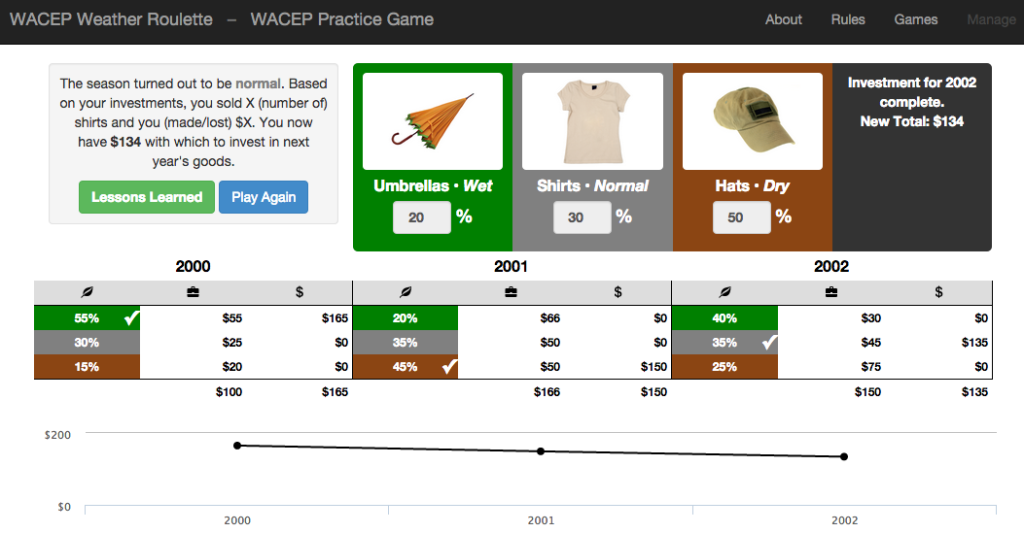Water and Climate Courses in the Caribbean
This article is a modification from a post by the Columbia Center for New Media Teaching and Learning.
This month, students completed the final course in a series of four online courses that address the ongoing societal challenges of managing water resources under the pressures of climate change and variability.
Early in 2014, the Water and Climate Education Program (WACEP) collaborative launched the first two courses as a part of waceponline.org, an educational initiative that provides water managers with technical expertise to mitigate existing water resource problems and develop sustainable water resource management programs. The goal of the courses and waceponline.org is to improve local and regional capacity to manage climate-related risk in the Caribbean. Each course includes a short series of lectures and an interactive element. Courses three and four support WACEPs goals of offering interactive educational programs, forming research partnerships, and developing regional collaborations with professional and higher education students. They were taught by Dr. Casey Brown, associate professor at the Department of Civil and Environmental Engineering at the University of Massachusetts at Amherst and adjunct associate research scientist at Columbia University. The International Research Institute for Climate and Society supported course content development, and the Columbia Center for New Media Teaching and Learning built the WACEP platform and interactive elements of the courses.

The Weather Roulette exercise in Course 4 aims to help participants better understand the potential value and limitations of using seasonal forecasts. This exercise has been led by IRI scientists at trainings around the world, but this is the first time its been integrated into an online platform and can be led remotely. CCNMTL worked with IRI scientists to create the online version.
The third course, “Climate Information for Improved Water Management,” launched in May 2014. It focuses on the production of climate information for the water management sector including hydroclimatic climate forecasts on seasonal to inter-annual timescales, and climate change projections. It includes a four-phase Forecasting Exercise aimed to give participants a better sense of the different steps involved in generating a basic climate forecast through the analysis of thirty years of data. The data reflects hurricane and named-storm activity throughout the Atlantic Basin in the Caribbean as reported by ENSO.
The WACEP collaborative launched the fourth course, “Water Planning and Policy for Climate Variability and Change,” in early November. The course teaches participants theory as well as how to build policy and develop planning methods as water managers in the Caribbean. The ultimate goal is for participants to understand the principles of climate risk management and use them to assess and plan for the risk of climate change and variability as it affects water supply systems. In addition, participants will be immersed in a Weather Roulette exercise where they will make probabilistic forecasts and determine best strategies for estimating the potential economic value of probabilistic forecasts.
The partnership is funded by the U.S. State Department’s Office of Economic Policy and Summit Coordination, as part of the Energy and Climate Partnership of the Americas and is managed by the U.S. Agency for International Development and Higher Education for Development.

You must be logged in to post a comment.